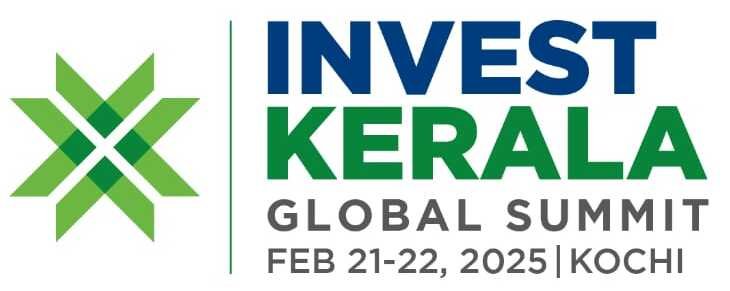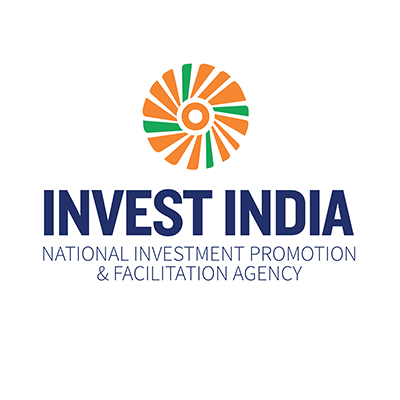Shell has had a roller-coaster ride in India. Having started in the decade of 1920s as Burmah Shell, it has been a journey of many avatars, going through high-powered gear shifting, including nationalization and then moving back to commercially-driven business environment.
In this detailed special feature, we focus on how the Royal Dutch Shell, or RDS, is working in the unique Indian business and socio-political environment in total harmony with Indians and Indian government. As Yasmine Hilton, Chairman, Shell Companies in India, said, “it is an exciting time for Shell in India (these days).”
AN OVERVIEW
Since the British Raj of 1920s when Burmah Shell started importing and marketing kerosene, the company has come a long way. Shell is now the most diversified international investor in India’s energy sector, and the only one with a license to build a network of up to two thousand retail stations to market fuel in the country. It supplies crude products and imports and re-gasifies LNG at Hazira. Shell blends lubricants at Taloja near Mumbai and sells them through a network of distributors. It also sells quality fuels through dozens of retail stations in south and western India.
Shell is a forward-thinking energy company and aims to meet global energy demand in an affordable and responsible manner. In India and globally, Shell has four sets of core businesses.
These include the downstream supplies and worldwide trades of crude oil, manufacturing and marketing of a range of products and production of petrochemicals for industrial customers. The company’s emphasis is on sustained generation of cash from existing assets and selective investments in markets with a sound growth potential.
In order to meet the ever-growing demand for natural gas in India, Shell’s Integrated Gas develops opportunities aimed at complementing domestic natural gas production with Liquefied Natural Gas, or LNG. (There is a separate section on LNG later in this feature.)
Shell has three strategic hubs in India including the Projects & Technology and Information Technology centers based in Bangalore and the Business Operations Center in Chennai. All three centers serve Shell’s businesses across the globe and their presence in India, employing several thousand people, over ninety-five per cent of whom are locals, is a testament to the highly qualified and skilled talent pool available in the country. Shell has a long history of investment in India and it remains committed to helping the country to meet its energy needs by bringing products and services of the highest quality and order to its people safely and responsibly.
Shell Business Operations, or SBO, manages the delivery of a wide range of services including finance, accounting, information technology and business and customer support to the company’s divisions worldwide.
Set up in September 2007, the SBO Center in Chennai has grown rapidly to fill 10 floors of a large multi-business campus. It leverages economies of scale and looks for continual process and functional efficiency in order to ensure the excellence of its operations and satisfaction of customers. Moving from being a “service provider” to a “business partner”, SBO Chennai emphasizes on process excellence by maintaining a sharp focus on delivering greater value for Shell globally.
In 2015, Shell India announced the creation of an in-house global information technology centre in Bangalore, which is expected to provide employment opportunities for several thousand IT professionals by 2020.
Currently located in a leased facility at Bangalore, the company will shortly move into a custom-built, 40 acre state-of-the-art campus.
DOWNSTREAM
Headquartered in Delhi and Bangalore, Shell’s downstream business is focused on fuels and commercial products. It has established a mark for itself with a license to setup 2,000 retail stations. Shell Retail currently operates in the states of Karnataka, Tamil Nadu, Andhra Pradesh, Maharashtra, Gujarat and Assam. The company recently launched its premium performance fuel, Shell V-Power in India.
Inspired by Shell’s technological innovations for Ferrari and to help deliver more power, Shell V-Power petrol has a unique double action formulation designed to actively clean the engine and protect vital parts of the engine.
Shell is a world class technology leader in lubricants, focused on delivering value to its customers through collaboration with OEMs, development of technology leading products, innovative marketing and service solutions as well as demonstration of technology leadership in improving energy efficiency and reducing the total cost of ownership.
With a network of about 250 distributors and a lubricant oil blending plant at Taloja, Shell Lubricants India sells a wide variety of lubricants to meet customer needs across a range of applications such as consumer motoring, heavy-duty transport, mining, power generation and general engineering. Shell Lubricants including Helix, Advance and Rimula are backed by unique technological expertise and decades of research and development by some of the best scientists around the world, all working to help the customers get the most out of every drop.
In a 50:50 joint venture with Mangalore Refinery & Petrocchemicals Ltd (MRPL), called the Shell-MRPL Aviation Fuels and Services Limited or SMA, the company supplies jet fuel to several airlines.
Shell Marine Products focuses on both the local and international segments in the marine lubricants market in India. Its customers place orders seamlessly through Shell Marine Products’ International Customer Service Centre, which is contactable round-the-clock worldwide.
INTEGRATED GAS
Shell is committed to making natural gas available to India, primarily via imported LNG. It is the first international oil & gas major to have made a significant direct investment in the gas infrastructure of India. For more than 20 years Shell has been engaged in developing opportunities aimed at complementing domestic natural gas production with LNG. At Hazira in Gujarat, along with an all-weather multi-cargo port, Shell has developed a terminal to receive LNG. Commissioned in 2005, the LNG terminal has received cargoes from almost every exporting center around the world. In line with growing demand, the terminal capacity has been increased from two mtpa to five mtpa and even further expansion is under consideration.
Natural gas supplies will be increasingly available to Indian consumers for creation of economic value and a better environment. In partnership with other companies, Shell is also involved in the development of a second LNG terminal at Kakinada in Andhra Pradesh. To facilitate progress of the project, which would deploy Floating Regasification and Storage technology – potentially for the first time in India – two sets of Memoranda Of Understanding have been signed. This project would help to tackle the acute shortage of gas in Andhra Pradesh and neighboring states.
Gas is the cleanest-burning fossil fuel and has an important role in enhancing India’s energy security. It also allows customers to make a positive contribution towards the environment by switching from liquid fuels and helping to address, for instance, concerns about ambient air quality.
LNG is the least polluting fossil fuel and is economically attractive compared to other liquid fuels. India’s potential for long-term growth in gas consumption is large. Further, the country saves significantly on foreign exchange when regasified LNG replaces liquid fuel.
PROJECTS & TECHNOLOGY
Shell’s Projects & Technology organisation, based in Bangalore, provides technical services and technology capability for both upstream and downstream activities around the globe.
It manages the delivery of Shell’s major projects and drives research and innovation to create technology solutions.
The Shell Technology Centre Bangalore, or STCB, is the latest among Shell’s three hubs for global technology, after Houston and Amsterdam. The center delivers advanced oil and gas field studies, technical services, research and development for Shell around the world as well as supporting Shell’s interests in India. While its upstream services span exploration, field development, engineering and production activities, its downstream services include chemical, gas and refinery operations.
The STCB has become home to a wide spectrum of technical disciplines and has specific expertise in fields such as LNG, subsurface modelling, data analysis, engineering design, bitumen, distillation, water technology and enhanced computational research.
It is engaged in a number of globally prestigious projects such as Majnoon and Basra Gas in Iraq, and LNG and FLNG ventures in Russia, Australia, India, Indonesia and elsewhere. Shell recently announced the ‘IH2 Waste to Fuel’ technology that effectively converts forestry, agricultural and municipal waste and even certain plastics into transportation fuels – petrol, diesel and kerosene, ensuring a viable solution for the country’s waste management problem and rising energy demand.
SALIENT ACHIEVEMENTS
• Over 500 graduates from the Institutes of Information Technologies or IITs and other premier education institutes constitute the ‘raw timber’ for Shell. A world class development program for graduates, spread over multiple RDS locations delivers a blend of experiential and theory based learning.
• At any point of time, around a third of the staff are out on international assignments, developing technical capabilities that they bring back into the country to undertake high-tech work for RDS.
• In the department related to technology business, approximately 15% of staff is directly hired abroad, thereby making the best global use of talent availability from among the Indian staff.
• A fully sponsored PhD in any of the top technical Dutch universities with a job in Shell India rolled in is offered to employees under bespoke programs such as the one related to computational sciences. This particular program is for only Indian students and aims to build futuristic computational and big data skills for work that will be delivered for the company in India.
The program is supported with financial commitment from Shell and the Netherlands organization for scientific research, or NOW. Around 55 students have already joined this program and another 20 will be selected anytime soon.
• Shell India’s core focus is on education and it aims to impact the quality of science teaching through partnerships with industry academia belonging to several top–tier Indian universities including Indian Institute of Science, the Indian Institutes of Science Education and Research (IISERs) and Pandit Deendayal Petroleum University to name a few.
• Innovation in funding in India is another key element of developing scientific temper and capabilities in the country. One recent example in this regard is STCB’s project to turn waste material into fuel.
• The labs in Bangalore stand witness to RDS’ commitment to develop Indian capability in experimental research. Close to 100 FTEs work in STCB and the funding it has so far received for experimental research alone, is amongst the highest anywhere in the company.
• For Shell in India, science and education is at the heart of Corporate Social Responsibility, or CSR. Partnerships with local communities on clean water technologies, funding mobile laboratories for resulted-oriented education and teaching partnerships at government schools all come together to reinforce our commitment to science.
• Shell India also provides scholarship to school students. The program named Shell Junior National Science Scholarship aims to develop a deep sense of love for science and innovation among the Indian youth. In 2014 alone, the company reached out to 15,000 students across 20 cities.
The scholarships hunt and recognize young school children with exceptional talent. It aims to inspire students to focus on science and the environment. The scholarships are for students of classes IX and X and help to nurture them for future challenges, thereby encouraging the innovators of tomorrow.
HEALTH, SAFETY, SECURITY AND ENVIRONMENT
Shell’s Commitment and Policy on Health, Safety, Security and the Environment applies across the organisation. All companies and joint ventures under Shell’s operational control manage safety in line with this policy, which in turn, is supported by a set of mandatory manuals covering topics such as personal, road and process safety.
Shell manages safety in a systematic way and ensures simpler and clearer requirements that are easier for people to understand and follow. Shell’s objective is to cause no harm to people or to the environment and it is called the “Goal Zero”.
DIVERSITY & SOCIAL INVESTMENT
For Shell, diversity and inclusion (D&I) are key drivers of value. Teams with inclusive behavior are more innovative and productive, and embedding D&I within Shell’s structure, people, processes and culture results in customers, employees, stakeholders and partners choosing the company or doing business with it more often.
At Shell’s growing network of fuel service stations a special effort has been made to hire women, people with disabilities, and disadvantaged members of society. In addition, Shell has made these sites more accessible for people with disabilities by installing wheelchair ramps and employing supervisors at each station who are conversant with the sign language.
Shell Companies in India work to create a positive influence in the communities and societies in which they operate. Innovation, collaboration and impact define their social investments which aim to create business as well as societal value. Shell companies commit their resources and employees to help find solutions to today’s challenges about sustainability.
The core themes around which Shell India creates and drives local plans are promoting technical education among children; promoting skill based education for livelihood enhancement skills, supporting environmental sustainability, and providing road safety education programs.
Shell Eco-marathon Asia is a unique competition that challenges students around the world to design, build and drive the most energy-efficient car. There are three annual events in Asia, the Americas and Europe, where student teams take to the track to see who goes furthest on the least amount of fuel. Since 2010, Indian universities have been a part of the Shell Eco-marathon and the company is proud to note that the enthusiasm and passion of the participants is growing with each successive year.
SHELL FOUNDATION
The Foundation also known by its anagram, the SF, is an independent charity that applies a business approach to global development challenges.
SF provides a rare blend of business support, funding for grant of patents and market links to help these pioneers test new solutions, build market demand, achieve financial independence and expand into new states. Many are now established businesses that operate at national and international levels.
In India, SF has been working since 2002 to support the growth of pioneer social enterprises that deliver large-scale social and environmental impact in sustainable ways. Its long-term partners include Husk Power Systems which specializes in providing off-grid electricity from agricultural waste and solar energy and Dharma Life – a new type of rural distributor for social impact products such as clean cook stoves and solar lanterns. Another partner for SF is EMBARQ which is a network of sustainable transport experts who are tackling congestion and pollution across India’s cities. fii-news.com.









